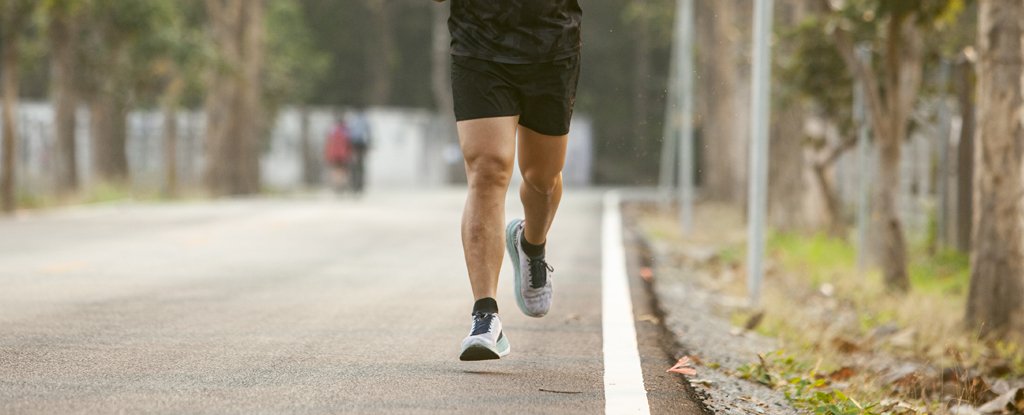Products You May Like
The Achilles tendon – the largest tendon in the human body – acts like a rubber band connecting the calf muscle to the heel bone. While we know it works like a spring that stores and releases energy as we move our legs, what’s not clear is precisely how it responds to exercise and training, if at all.
More specifically, are the characteristics of our Achilles tendons set at birth by genetics, or can the tendons truly adapt to long-term physical activity, thus protecting them from stress and overuse injury? To find out, a new study got together 40 pairs of identical twins and quizzed them about their exercise habits over the last few years.
The results of these surveys were then matched against the qualities of their Achilles tendon tissue, measured with a handheld oscillation device. In particular, the researchers looked at the mechanical stiffness of the tendon – a sign of it being able to store more energy.
“Much debate exists about the adaptation of the Achilles tendon in response to exercise activities,” write the researchers in their newly published paper.
“Most published research is currently limited to elite athletes and selected exercise activities. Also, existing studies on tendon adaptation do not control for genetic variation.”
The team found there was generally large variation among Achilles tendons in both groups, but not much difference in tendon stiffness when comparing mostly active twin pairs to mostly inactive ones – evidence that genetics does play a role in Achilles tendon characteristics.
However, in unequal pairs where one twin was more active than the other, the tendons of the active individual were an average of 28 percent stiffer. That suggests there is some scope for the Achilles tendon to be trained and safely adapted by regular, non-elite level exercise.
The findings match up with previous research carried out with elite-level runners that showed they had thicker and stiffer Achilles tendons. There’s also been earlier evidence that straining tendons triggers several cellular and molecular responses.
“Our study provides the first evidence that the individual Achilles tendon stiffness is partially determined by genetic variation,” write the researchers.
“In addition, the study also indicates that exercise activities at a recreational level can trigger Achilles tendon adaptation if stimulated regularly for years.”
There was one other finding reported by the researchers: Exercises involving ‘aerial phases’ like basketball and running – where the feet completely leave the floor – have more impact on the Achilles tendon than exercises like swimming or cycling.
“It seems likely that regular exercise activities with an aerial phase can increase the risk of an overuse injury of the Achilles tendon. Consequently, individuals who participate in an exercise activity with an aerial phase should slowly increase their training intensity level to allow the Achilles tendon sufficient time to adapt to the high impact loading,” the team concludes.
As always, further research should give scientists more detail on exactly why this is. Larger sample sizes, involving twins with more varied exercise schedules and more varied types of exercise, would be useful.
Further down the line, the new study could help athletes tailor their training schedules, casual runners improve their technique, and doctors treat (or prevent) injuries to this important body part.
“[The new results] offer new insights into the impact of genetic variation on individual Achilles tendon stiffness, which should be addressed more closely in future studies,” write the researchers.
The research has been published in Frontiers in Physiology.
